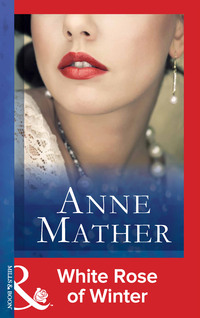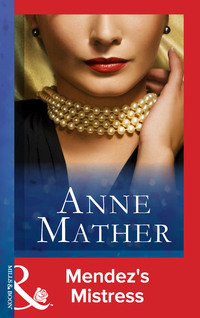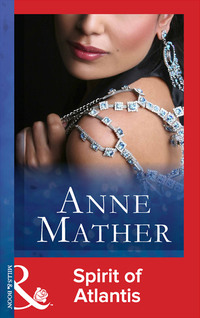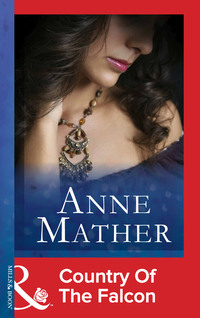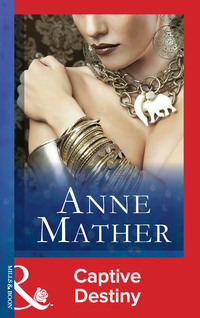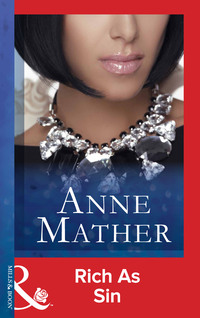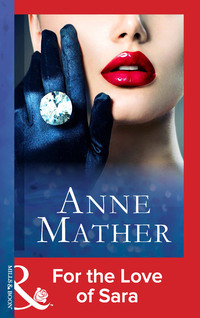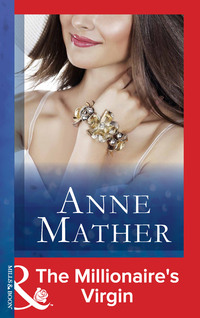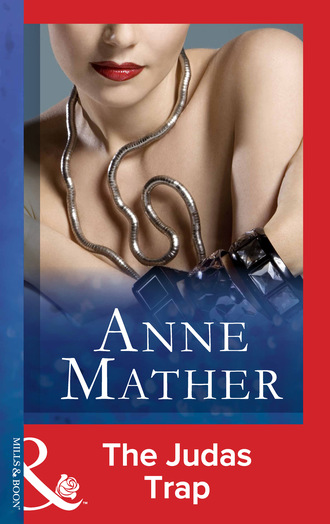
Полная версия
The Judas Trap
‘Come …’
He was holding out a hand towards her now, and avoiding it she had no choice but to cross the hall towards the library door. There was a moment’s pause before he followed her, and then she heard his footsteps right behind her.
The library was large, by anybody’s standards, but age and neglect had added an air of dampness and decay. Nevertheless, a fire was smouldering comfortingly in the grate, and the smell of Havana tobacco went a long way to disguising its less pleasurable aspects. Shelves of books lined two long walls and half the third, where drawn blinds indicated a shaded window. The fourth was taken up by the huge fireplace, and a pair of darkwood cabinets, in which resided a collection of chess pieces, from jade and ivory, to ebony and alabaster. There was a desk, on which a tray of drinks rested, and as well as the leather chair that faced it there was a pair of worn green velvet armchairs that fronted one another across the hearth.
Hovering in the centre of the room, Sara heard Adam close the door behind him, and presently he passed her to indicate the chairs beside the fire.
‘Won’t you sit down?’ he suggested, and with a sureness born of long practice, his hand sought the tray of drinks upon the desk.
Sara sat, partly because her legs felt a little unsure, and partly because it put more distance between them. It was all very well, posing as Caesar’s wife, but she did not know what he might expect of her, what indeed he might do to induce her to stay.
The temptation to confess her identity rose within her again only to be squashed as she watched him fumbling with the bottles. Evidently their shape and size identified them to him, and presently he turned and said: ‘What can I offer you? Whisky, gin? Or your usual?’ His lips twisted suddenly, the first sign of bitterness? ‘Or perhaps it’s not your usual any more.’
Sara hesitated. Diane’s usual drink these days was bitter lemon, with an occasional dash of vermouth, when calories permitted.
‘My—usual, I think,’ she conceded doubtfully, and swallowed rather convulsively when he presented her with a tall glass that looked as if it contained Coke, and smelled strongly of rum. She guessed Bacardi had been added, and when she tasted it her suspicions were justified.
‘Ah …’ Adam had poured himself a measure of whisky, holding the neck of the bottle against the rim of the glass, listening to the sound it made and measuring its contents accordingly. ‘It’s been a long time, Diane.’
Sara nodded, realised he couldn’t see her, and said: ‘Yes,’ in a low tone.
‘I must say you’re less—aggressive than I would have expected,’ he continued, surprisingly, supporting himself against the lip of the desk. ‘I guessed you’d come—but not without protest.’
Sara took a sip of her drink to give herself courage. So it was confirmed. Adam had sent for Diane. But why? Had he told her?
‘Do you think the place has changed much?’ he was asking now, and as this was safer ground she felt able to answer him.
‘I think—there’s dampness,’ she ventured. ‘I expect, because the house has stood empty for so long …’
‘So long,’ he agreed, his mouth drawing down at the corners. ‘Too long. What do you think, Diane?’
She didn’t understand what he was getting at. Why had he asked Diane to come down here? What possible motive could he have? He must know she was a working actress—he had intimated as much in the hall. And yet he thought he had persuaded her to come down here …
Sara pressed her lips together and stared anxiously up at those hooded eyes, dark behind their concealing lenses. What thoughts were going through his mind? What manner of man was he to imagine he could summon back a wife who had left him without scruple seven years before? If, sick and blinded, after the accident when it was suspected he had tried to kill himself, he had been unable to sustain Diane’s sympathy, why should he suppose she might come back now?
It was all getting rather deep and disturbing, and with the sky darkening outside, Sara was feeling a distinct sense of unease. It wasn’t just that she was here under false pretences. If she had been Diane herself, she felt sure she would have experienced the same kind of feeling, a sense of enclosure, of being trapped, of being imprisoned with this man in the darkness he had occupied for the past seven years …
‘Another drink?’ he suggested, but looking down at the almost untouched glass in her hands Sara demurred.
‘I—I shall have to be going soon,’ she murmured, and sensed rather than saw his stiffening features. ‘I—can’t stay here.’
‘Why not?’ His voice was harsh. ‘There are plenty of rooms; plenty, as you know only too well.’
Sara set down her glass on the hearth, welcoming the fire’s warmth against her chilled fingers. ‘I—I don’t think you understand’—she was beginning, deciding this had gone far enough, when once again he interrupted her.
‘It’s you who don’t understand, Diane!’ he declared coldly. ‘I didn’t bring you here for a friendly chat, as you’re aware. Nor do I intend that you should leave again, the minute you decide I’m no real threat to that comfortable life you’ve made for yourself!’ He tossed back the remainder of the whisky in his glass with a careless gesture. Then he faced her across the width of the faded patterned carpet, and if she had not known better she would have sworn he could see her there, sitting nervously on the edge of her chair. ‘You came because my letter frightened you, because you didn’t really believe it, but you couldn’t be absolutely certain. Since your arrival you’ve been watching me, studying my reactions, trying to decide whether I meant what I said, and if I did, what I could do about it.’
Sara got to her feet jerkily. ‘You don’t understand, Mr Tregower,’ she said then, fear combining with a natural nervousness to bring a tremor to her voice. ‘I—I am not—not your wife, not Diane Tregower. My—my name is—is Sara Fortune, and—and I don’t know what you’re talking about.’
There was silence for several pregnant minutes, minutes when she could see he was grappling with what she had just said, digesting it, dissecting it, testing it for flaws, and finding it wanting. Then a bitter smile twisted his lips and a short harsh laugh broke from them.
‘Oh, bravo, Diane, bravo!’ he complimented her mockingly. ‘Yes. Yes, indeed, that was worthy of the actress you undoubtedly are. To deny your own identity—how clever, and how apt! How could a blind man be sure you are who you say you are, particularly a blind man who has not seen you for so many years? The voice, the body, even the make-up of the face could have changed in that time. And he would have no way of knowing, no way of really being sure …’
Sara gasped. ‘It’s true. I’m not lying. I really am who I say I am.’
‘Then why did you not say so before?’
‘Why, I—because I—’
‘Because you didn’t think of it!’
‘No!’
‘Oh, come on …’ There was nothing to pity about him now. Standing squarely between her and the door, he epitomised the dominant male, hard and masculine, and totally without sympathy. ‘I know you, Diane. I know everything about you. I’ve listened, until I’m sick to my teeth, to stories about your charm, your looks, your likes, your dislikes, your absorption with self, self, self …’
‘No!’
‘I’ve watched a man disintegrate before my eyes, lose all his confidence, his self-respect, even his will to live, while he spoke of your needs, your demands, your success. Your selfishness, more like, your flawed image, your destructive self-indulgence that must be satisfied, whatever the cost!’
Sara didn’t understand all of this. ‘You—you watched a man …’ she whispered unsteadily, and with a savage oath he tore off the glasses which had concealed his eyes, revealing them to be a brilliant shade of amber, burning now with the hard light of malevolence.
‘Oh, yes,’ he said, as she stood there staring uneasily at him, realising weakly that he could see. And why not? This was not Adam Tregower—she realised that now. The resemblance was there, the features followed a similar pattern and given the half light she could be forgiven for mistaking his identity. But this man’s face was harder, stronger—younger. A relative, no doubt, but not Diane’s husband.
‘You—you’re not—’ she stammered, wondering why the knowledge gave her no relief, and he nodded.
‘No, I’m not,’ he agreed harshly. ‘I’m Michael Tregower. Adam is—was—my brother!’
CHAPTER TWO
‘YOU LOOK SHOCKED!’ he declared a few moments later, as Sara continued to stare disbelievingly at him. ‘Didn’t you know Adam had a brother? Perhaps not. It doesn’t surprise me. I was always considered the skeleton in the Tregower family cupboard.’
Sara licked her dry lips. ‘Adam—Adam did not have a brother,’ she declared, faintly but succinctly. ‘I know. Di—Diane told me.’
‘Really.’ Plainly he did not believe the latter half of her statement. ‘Well, I’m sorry to disappoint you, but he did. A half-brother, at least. His—our—father was not averse to sowing a few wild oats of his own.’
‘You mean—you mean—’
‘I’m a bastard? Yes, that’s right. Bastard by name, and bastard by nature, wouldn’t you agree?’
‘Look …’ Sara sought desperately for words to explain all this, ‘I don’t care who you are or why you’re here. I don’t even care what you think of Diane or—or the way she behaved towards your brother. What I must repeat is that—that I am not her. My—my name is Sara Fortune, as I’ve told you—’
‘Oh, spare me the dramatics, will you?’ Michael Tregower reached into his pocket and drew out a case of narrow cigars, placing one between his teeth while he sought for his lighter. ‘We both know who you are and why you’re here—’
‘No. No, you don’t—’
‘I beg to differ.’
‘Mr Tregower! Please! Listen to me!’ Sara took an involuntary step forward, and as she did so his hand came out and caught her wrist, his thumb pressing cruelly against the veins on the inner side of her arm.
‘No,’ he denied. ‘You listen to me. Adam is dead, didn’t you understand what I said earlier?’
‘ No !’
‘Yes.’ Michael thrust his dark face closer to hers, the odour of whisky on his breath invading her nostrils. ‘Dead, do you understand? By his own hand. And there was nothing I, or any of us, could do about it.’
‘No!’
Sara moved her head futilely from side to side, her long pale hair contrasting with the darkness of her jacket, as the blood draining out of her hand had a curiously numbing effect. Staring into Michael Tregower’s vengeful features she had the uncanny notion that he intended to kill her, too. That that was why he had sent for Diane, why he had threatened her in some way that forced her hand, and brought her down here. Only she hadn’t come. She had sent Sara instead, hoping perhaps that the blind husband she had not seen for seven years would be unable to distinguish between them. And it might have worked, bearing in mind Sara’s own instinctive compassion for the man she had thought to be Diane’s husband. Whatever reason he had had for sending for his wife, she had banked on her counter-action to thwart it, though what excuse she could give Sara the girl had yet to wonder.
‘I tell you, I’m not Diane Tregower!’ she cried, fear forcing the note of panic into her voice. ‘You’ve made a terrible mistake!’
‘No, Diane. You made the mistake in coming here,’ he declared, a mocking smile curling his lips. ‘Really, Diane, I expected better of you. Were you really disturbed by my little note? So disturbed that you made a special journey down here—alone?’
‘You—you sent for Diane?’ Sara choked, trying impotently to free herself, but he was merciless.
‘Of course,’ he replied. ‘Haven’t I just told you? Adam’s dead. He died three weeks ago. Three weeks in which I’ve thought of little else but the pleasure of getting my hands around your selfish little neck!’
Sara’s breathing had quickened alarmingly, and she could hear her heart thundering in her ears. Her blood pressure must be sky-high, she thought, though her own health had never meant less to her. Even so, a slightly hazy feeling was invading the corners of her eyes, and although she struggled to fight the wave of faintness that was overtaking her, the encompassing blackness engulfed her like a welcoming shroud.
She came round to find herself lying on a dust-sheeted sofa in a room she had not seen before. She guessed it had been a sitting room or a drawing room, and judging by the shapes beneath their ghostly covers, there were other sofas and armchairs, and was that a grand piano in the window embrasure?
The dizziness had subsided, and she was edging up on to one elbow when Michael Tregower came into the room carrying a glass of what looked like water. His face was paler, too, than she remembered it, but his eyes were just as hard when they alighted on her. He came to stand over her as she flopped back weakly against the cushions, and her heart began its familiar tattoo at the flintlike coldness of his expression.
‘Are you all right?’ he demanded, but it was more of an accusation than an enquiry.
‘What—what happened?’ she asked, playing for time, and grim lines bracketed his mouth.
‘I apparently frightened you so much, you fainted,’ he declared, contemptuously, offering her the glass and when she declined, disposing of it on to the mantelshelf, which was not shrouded. ‘Or was that affected, too? If so, you’re a better actress than even I gave you credit for being.’
Sara swung her legs rather shakily to the floor and sat up. His callousness almost equalled Diane’s, she thought, half deciding they deserved one another. But then, remembering the murderous glint in his eyes when he had spoken of his brother’s wife, she resolved not to give in to petty revenge. Nevertheless, Sara was appalled at the way Diane had sent her down here, knowing full well that she was supposed to avoid excitement of this kind.
‘I think we’d better eat,’ Michael Tregower said now, and Sara gazed up at him in amazement.
‘Eat?’
‘Why not? Mrs Penworthy’s left us a cold meal in the dining room. We might as well reinforce ourselves for the night ahead.’
Sara shook her head helplessly, her eyes drawn to him in spite of her revulsion to his cruelty. How old was he? she wondered. Thirty-two, thirty-three? Was he married? Or had he avoided that state after his brother’s misfortunes? Whatever, there had to have been women in his life and his remarks about the night ahead filled her with alarm. Somehow she had to resolve this unpleasant situation before anything further happened, and getting rather unsteadily to her feet she said:
‘Where’s my handbag?’
‘Your handbag?’ Michael Tregower thrust his hands into the waistline pockets of the moleskin pants he was wearing. Close-fitting as they were, they outlined every muscle of his powerful thighs, and she guessed with a feeling of disgust that in her place, Diane might not have found the prospect of his attention so unwelcome. ‘Why do you need your handbag? You’re not going anywhere.’
Sara held up her head. ‘Where is my handbag?’ she repeated, and after a moment’s grim scrutiny of her determined features he strode impatiently out of the room.
It crossed her mind to make for the front door while he was employed in finding her bag, but as her keys were in its pocket, it seemed a futile exercise. Instead she walked rather stiffly across to the hall door and looked out.
Already he was emerging from the library again, carrying her handbag, through which he was rummaging with scant regard for her possessions.
‘How—how dare you?’ she gulped, as he finished his search and thrust the bag into her hands, but he merely grimaced at her.
‘I wouldn’t put it past you to carry a gun, sister dear,’ he retorted mockingly, and she gazed openmouthed at his effrontery. A suddenly strange expression crossed his face as he looked down at her, and almost unwillingly he reached out a hand to brush his knuckles down her cheek. She flinched away from his touch, but he was not offended, and his lips twisted with sardonic amusement. ‘I must admit,’ he drawled, ‘Adam had better taste than I gave him credit for. No wonder he found your defection so hard to take. In his position, I might even have done the same.’
‘I doubt it.’ Sara found she was trembling with indignation, but she couldn’t help it. She had never met a man who had treated her in this way, who held her femininity in such low regard. Owing to her health, and her mother’s obsessive care of her, her encounters with the opposite sex had been kept to a minimum until Tony appeared on the scene. Her mother’s death a year ago had left her in a state of limbo, and unaware of her weakness, Tony had come closer to her than any man had ever been allowed to do. That was until Diane chose to intervene, and now Sara’s withdrawal was as much an instinctive thing as an emotional one.
Michael Tregower was regarding her with guarded eyes. ‘Perhaps not,’ he agreed dryly. ‘No woman is worth that kind of sacrifice. Not even you, Diane.’
Clenching her teeth, Sara scrabbled round in her handbag and brought out her driving licence. ‘There,’ she said, thrusting it at him. ‘My name is Sara Fortune. That’s my licence.’
He took the plastic folder without protest, and flicked it open. ‘Sara Fortune,’ he read, with dark eyebrows slightly upraised. ‘Flat 3, Dolphin Court, West Kensington. Hmm, very interesting. Who is Sara Fortune, by the way? Your secretary? Wilmer’s?’
‘Lance Wilmer is my father’s cousin,’ declared Sara angrily. ‘I tell you, I’m Sara Fortune. Why won’t you believe me?’
Michael Tregower’s brows descended. ‘Did you honestly think producing a driving licence would convince me? My dear Diane, it occurs to me that if you’d had an accident around here, it might have been hard to explain exactly what you were doing in the area. People in your position often travel incognito, don’t they? So—you’ve adopted Miss Fortune’s identity, whoever she may be.’
Sara sighed. ‘Haven’t you ever seen Diane? Haven’t you ever met her? I’m nothing like her.’
‘Slim, blonde, green eyes; looks younger than her years …’ he shrugged. ‘You would seem to fit the description very well. Besides,’ his mouth tightened ominously, ‘Adam had a picture of you in his wallet. You’re Diane Tregower all right. I’d know that innocent face anywhere!’
Sara shook her head, thinking desperately. ‘But don’t you see?’ she said at last. ‘The picture Ad—your brother kept in his wallet was probably taken ten years ago. Diane’s changed. She’s older now. Where is the picture? Let me see it.’
‘I don’t have it,’ he declared coldly. ‘Adam would never let it out of his hands. After he was dead, it was buried with him.’
‘Oh.’ Sara felt as if the bottom was dropping out of her world. Then another idea came to her. ‘Ring,’ she said. ‘Telephone London. I have Diane’s number. Speak to her. See for yourself that she’s really there, not here. She—she’s appearing in a play at the moment.’ She glanced nervously at her wrist watch. ‘Ring the theatre. Surely that will convince you.’
He stared at her beneath lowering lids. ‘How do I know you don’t have someone waiting at the theatre, depending on this call?’
‘How could I?’ Sara was desperate. ‘How could I know what might happen?’
He scowled. ‘My note—the note you thought came from Adam was explicit enough. Come alone, it said. Tell no one where you’re going.’
Sara gulped. ‘Well—well, surely then, I wouldn’t—have told anyone …’
He was obviously hesitating, and she pressed a finger on her palpitating pulse. No excitement! she thought wryly. Dear God, she had had more excitement in the last half hour than she had had in her whole life before. She ought to be dismayed. But she wasn’t. She had never felt the adrenalin flooding along her veins as it was doing at the moment, and the exhilaration that accompanied it was intoxicating.
‘All right,’ he said at last, when she was beginning to give up hope of him ever agreeing to make the call. ‘What’s the number of the theatre? I’ll speak to the manager.’
Sara scribbled the number on a slip of paper and handed it him. She supposed, belatedly, that she ought to have pretended ignorance, or at least hesitated before writing down the figures. But it was too late now. He was already crossing the hall to pick up the green telephone that rested on the oak chest.
There was a moment’s delay while he contacted the operator at Torleven, and then Sara heard the reassuring burr of the bell ringing in the manager’s office. It seemed to ring for ages before it was answered, but when the receiver was lifted, she found herself holding her breath as Michael Tregower made his enquiry.
‘Not there?’ he said, a moment later, swinging round to stare grimly at Sara. ‘What? Taken ill? I’m sorry. Do you know when she’ll be back? Oh—I—er—I’m just a friend. A friend of a friend, as you might say. No. Sorry. Yes, of course. Goodbye.’
As the receiver was replaced, Sara felt her tongue clinging to the roof of her mouth. She didn’t have to be told that Diane wasn’t in the building. Even without Michael Tregower’s words, his expression said it all.
‘There’s panic on, apparently,’ he declared without emotion. ‘Your understudy’s had to take over at the last moment, and people are demanding their money back. An unexpected illness, so your agent tells them. They don’t know when you’ll be able to return.’
Sara moved her head in a helpless, negative gesture. ‘Diane—Diane must have planned this,’ she said incredulously. ‘She must have known I might try to get in touch with her …’
‘Oh, come on.’ He sounded really impatient now. ‘Don’t you think this has gone on long enough? When you passed out just now I should have realised that no stranger was likely to react so positively. You were scared, Diane, admit it! Scared out of your tiny mind! But not half as scared as you ought to be now, knowing I know that you’ve burned your bridges behind you.’
Sara felt unutterably weary suddenly. It had all been too much for her. Much too much. The retort that had she known Diane would not be there, she would hardly have suggested ringing the theatre, trembled on her lips, but was never spoken. Michael Tregower would doubtless decide she had only been playing for time, for whatever defence she raised, he tore it down ruthlessly.
‘I think we should eat, don’t you?’ he declared coldly, and with a helpless movement of her shoulders, she implied consent.
The dining room was at the back of the house, and here the blinds had been drawn to allow the last light of the evening to penetrate its shadowy corners. A lamp on a long sideboard gave illumination, and the table was laid with a white damask cloth and silver cutlery. There was a savoury quiche, a dish of cold meats, a bowl of tossed salad, and some crusty rolls. To follow there was a strawberry gateau, and Sara wished she felt more able to do justice to it. But her mind buzzed with the possibilities of what Michael Tregower intended to do with her—with Diane—and it was difficult to concentrate on anything with that nagging anxiety bringing a hectic flush to her cheeks.
‘Relax,’ he remarked unsympathetically, leaving her to seat herself on one of the tapestry-covered chairs. ‘For a woman of your age and apparent experience, you’re ridiculously sensitive. Or is that an act, too? How does one tell?’
Sara subsided on to the chair at the opposite end of the table from the one he had taken, and made no attempt to answer him. But her silence was evidently no more acceptable than her diffidence, for he stifled a curse as he rose again and came to take the seat at right angles to her.
‘Surely this is cosier,’ he remarked with cold mockery, and her hands tightened automatically in her lap.
She supposed she ought to tell him that as well as being someone else, she was also suffering from a rare heart disease that, while allowing her to lead a normal life in ordinary circumstances could, given sufficient stimulation, cause valvular failure and, ultimately, death. It was a condition she had lived with all her life, or at least as long as she could remember. Rheumatic fever when she was scarcely out of infancy had affected her heart, narrowing the valves and preventing them from closing properly. Regular care and the use of drugs had minimised the effects of the disease, but it was always there, and in cases of extreme stress her heart could cease to function entirely. Sara seldom talked about it. Indeed, if anything, she was ashamed of the weakness that her mother had guarded so vigilantly. After her mother’s death, she had felt a sense of freedom from the knowledge, but Tony’s defection and her subsequent withdrawal had reminded her of her vulnerability.


